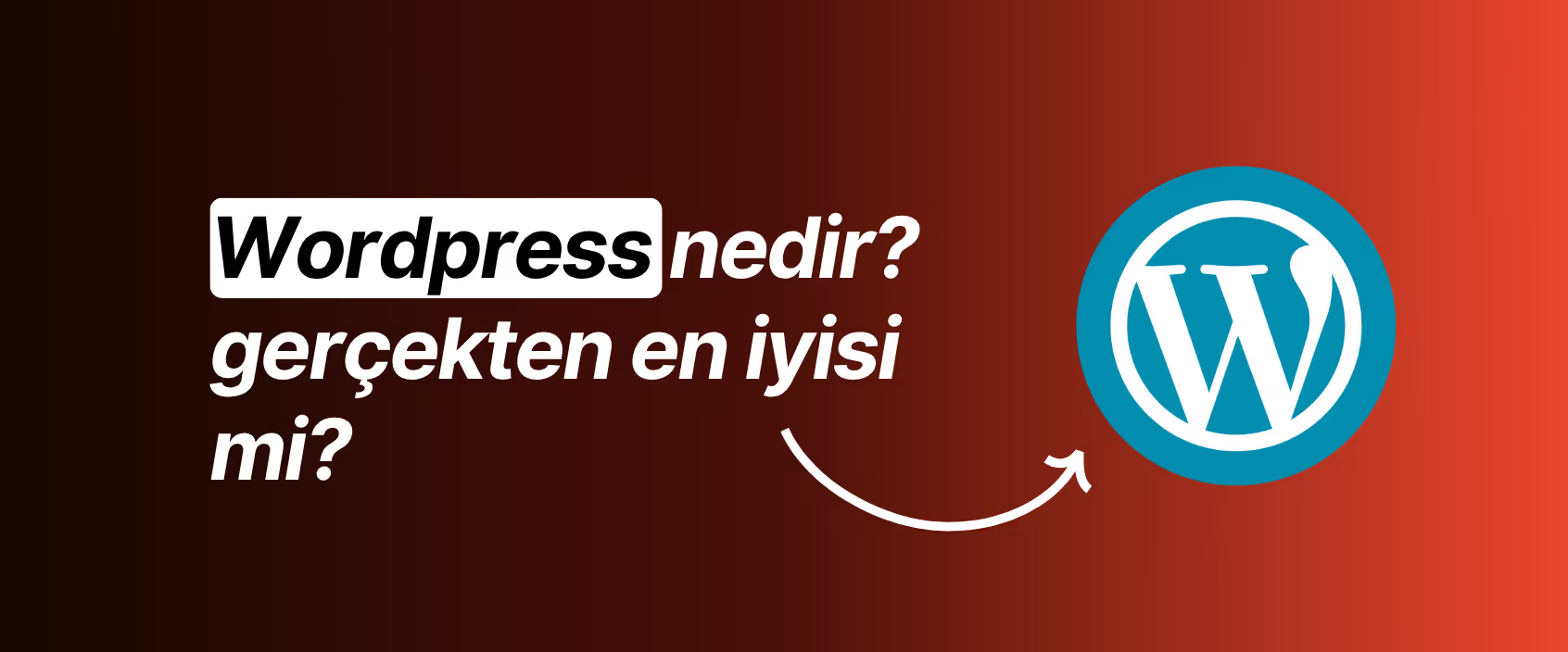The first step to building a strong presence in the digital world is through having an effective website. One of the most asked questions at this point is: What is WordPress?
Many people and organizations, from content creators to corporate firms, e-commerce sites to portfolio owners, when creating websites WordPress He prefers platforms like this.
In this article, What is WordPress Going beyond the question, we will examine in detail the advantages of the system, the areas of use and why some alternatives (especially Webflow) stand out in the modern era.
What is WordPress and what does it do?
WordPress, an open source content management system (CMS) is the most widely used web site infrastructure in the world. In short, it allows users to create websites without the need for any coding knowledge.
What is WordPress? If we give a more comprehensive answer to the question:
- It offers a flexible structure with theme and plugin support.
- Blog posts, pages, images and videos can be easily added.
- It provides major advantages in terms of SEO.
- Thanks to its large community, it is always possible to find support.
What can you do with WordPress?
The greatest strength of WordPress lies in its flexibility. It offers a wide range of uses, from simple blogs to large-scale corporate sites.
Personal blogs and content platforms
One of the areas in which WordPress is inherently strongest is content management. It offers a great start for individuals who love to write and want to share their thoughts. It provides a complete publishing infrastructure with features such as tagging, categorization, visual insertion, and comment management.
- E-commerce stores (with WooCommerce):WordPress can turn into a powerful e-commerce platform thanks to the WooCommerce plugin. Many functions can be integrated, such as product catalogs, payment systems, shipping options, campaign modules. It is an ideal solution for small and medium-sized businesses.
- Corporate promotion sites: WordPress is quite suitable for corporate sites where companies can offer their services, teams, testimonials and contact information. The template can be developed with custom designs starting from themes, and visibility can be increased thanks to its SEO-friendly structure.
- Online training and membership systems: It is possible to create online course platforms with LMS (Learning Management System) plugins. Thanks to features such as user registrations, level tracking, exam modules and certification, training sites can be managed at a professional level.
- News, magazines and media sites: For news and media platforms that require frequent content updates, WordPress's dynamic structure is quite advantageous. It has many features for media needs, such as author profiles, category-based content presentation, and banner areas.
- Portfolio and CV pagesCreating personal portfolio or resume (CV) sites for freelancers, creative professionals or job seekers is pretty easy. Areas such as project galleries, resume sections, contact forms can be presented simply but effectively.
Thanks to its user-friendly interface, the process of adding content, editing pages and updating is quite simple. But this convenience can sometimes fall short when deep customization is required.
A strong digital presence isn't just built with a website; it's built with the right platform, solid strategy, and creative minds.
WordPress vs Webflow
When creating a website, it's not just appearance anymore; speed, security, SEO, and user experience are also critical. At this point What is WordPress In addition to the question, you should also ask the following question: What are the alternatives and which one works better?
The following table, With WordPress Webflow It lays out the main differences between:
Why Webflow? A Next Generation Approach to Design
Webflow, especially flexibility in visual design, fast page load times and clean code infrastructure stands out with. In this platform, full control over each element can be achieved. Thanks to its powerful editor that works with drag-and-drop logic, you can create any design you want without writing code.
In addition:
- Webflow, automatically clean HTML-CSS produces.
- SEO infrastructure is embedded, plus no plugins are needed.
- Page loading speeds score quite high in terms of Google Core Web Vitals.
- Technical details such as hosting, security, SSL are managed by Webflow.
In short, Webflow design is a powerful solution for creative teams and performance-oriented brands alike. What is Webflow? You can find detailed information in our blog.
consequence
What is WordPress? It is now necessary to consider the answer to the question not only in the past, but in conjunction with today's technologies. If you're looking for a simple blog site or a low-cost solution, WordPress might work for you. But if modern design, speed, SEO and user experience are at the forefront for you, Webflow can be a much better investment for you.
Remember: no matter the platform, a successful digital asset, with a good strategy and a professional team is built.
At Roicool, it stands alongside brands on this journey, not just the site, Digital experiences that generate value We design.










